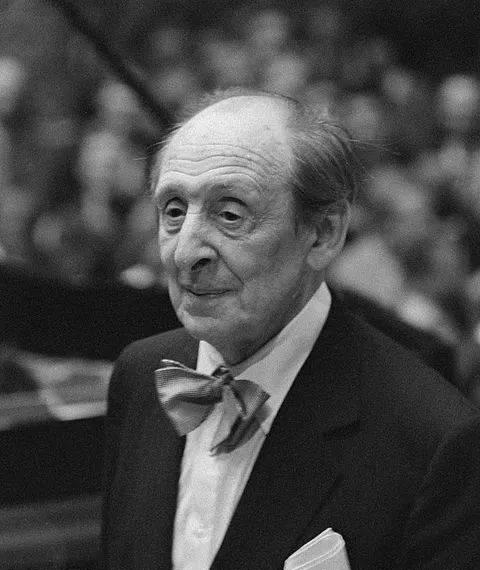
Born in Kiev, Russia, one of the world's most prestigious pianists, he was the last giant of the classical Romantic piano, the culmination of the Russian school and the German school; Rubenstein even said: "What he does on the stage is like Mozart, Beethoven, Schumann, Schubert and these people have lived all their lives to provide colorful music for his security." His repertoire is quite extensive, and his performances of rachmaninov, Tchaikovsky, Scriabin and others are almost a benchmark existence, especially those of Chopin, Scaratti, and famous artists such as Schumann, Liszt, and Scriabin; he has won twenty-four Grammy Awards in his lifetime.
Throughout his life, Horowitz regarded Rachmaninoff as a "spiritual father." Hoch is an excellent interpreter of Rach's music, and his performance of Rachmaninoff's Piano Concerto No. 3 is unrivaled.
Some music critics believe that he is like a painter, using colorful to create different tones, thus expressing a variety of musical sentiments. What perfects Horowitz's piano sound, however, is his brilliant use of the piano pedal. Regarding the importance and understanding of the piano pedal, among the pianists of the 20th century, Horowitz is definitely a master unparalleled.
Horowitz has a jaw-dropping playing skill, and he is arguably the most perfect piano master since recording. For him, piano playing does not seem to be "technically difficult". If you've seen the master play the Carmen-themed Variations at Carnegie Hall in 1968, you'll be stunned by his flint-like flint on the keyboard. Many difficult works in playing are so elegant and comfortable for him to play.
His control of speed, dynamics and timbre is outstanding in terms of technique, especially in the octave playing. There is both a sonorous and powerful metallic sound, and a dreamy soft sound. He played a wide range of repertoire, specializing in romantic works, and the concertos of Liszt and Rachmaninoff were unparalleled.
Horowitz has a pair of soft hands, and he can even bend the little finger completely at the same time as the other four fingers hit the key. Left-handed accents are his characteristic.
His performance is not limited to the concrete embodiment of the composer's musical intentions, but also to his personality and unique understanding. He believes that a talented, outstanding performer should have a sense of creative freshness every time he plays within the scope of understanding the work. In Horowitz's hands, the piano truly became a band of 88 keys.
Horowitz was born on October 1, 1903 in Kiev, Russia, to a wealthy family of electrical technicians.
He learned piano from his mother at the age of 5.
In 1912 he entered the Kyiv Conservatory and studied piano under Tarnovsky and Blumenfeld. He graduated in 1919.
He then made his debut in Kharkiv, Ukraine, and began his career.
In 1924, he held travel performances in Berlin and Paris, which were successful. Quickly gained an international reputation.
He left the Soviet Union in 1925.
On January 12, 1928, he played Tchaikovsky's Piano Concerto No. 1 in New York, USA, causing a sensation. In the same year he settled in New York.
In 1933, he began to collaborate with Tuscanini on Beethoven's piano concerto, which gained a worldwide reputation.
Soon married to the daughter of Tuscanini.
In 1936, Horowitz left the stage for the first time on the grounds of poor health, announcing his retirement, and the master was only 32 years old at the time. In the quiet life of retreat, he focused on the contemplation and exploration of music. Cameback after three years. Horowitz has gone from being a fiery technologist to an introspective, mature artist.
He became a U.S. citizen in 1944.
He retired from the stage several times, and from 1953 to 1965 he lived in seclusion for 12 years on the grounds of damage to his nervous system, immersing himself in the study of Clementi's works.
On May 9, 1965, he returned to the stage and gave a recital concert at Carnegie Hall in New York, which caused a sensation in the music scene.
He retired again after 4 years and came out again in 1974.
He returned to the Soviet Union in 1986 at the age of 82 and gave concerts in Moscow and Leningrad.
He died of a heart attack on November 5, 1989, at his home in New York, and was buried in the Toscanini family cemetery in Milan.
The last shreds of classical Romantic music dissipated permanently in reality. Since then, the golden age of piano has come to an end.
Vladimir Samoylovich Horowitz (1 October 1903 – 5 November 1989) was a Russian-American pianist.
#历史上的今天 #